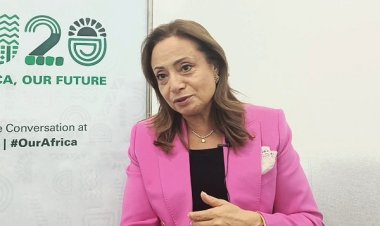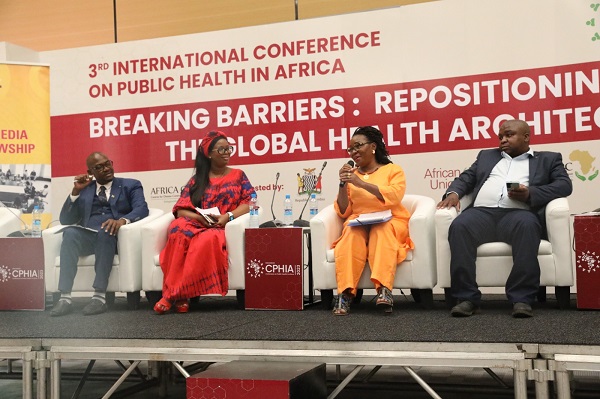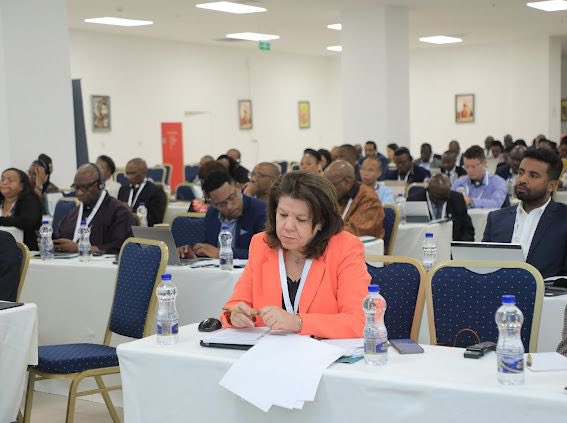Calls on industrialized nations to undertake meaningful actions to tackle the climate crisis grew louder this week as it emerged that despite money being pooled into the global climate funds, green infrastructure projects across Africa receive little to no funding.
As developing countries are not responsible for causing climate change, yet are hit hardest and have the least resources available to respond to its effects, the adaptation funding that is mobilized at global level was expected to trickle down to help the affected countries to cope.
However, officials said attracting the finance has remained a challenge, plunging countries further into debts to plug infrastructure deficits.
The issues came to the fore during deliberations at inaugural Africa Climate Summit in Nairobi this week where the African Union Development Agency (AUDA-NEPAD) and partners held discussions to devise ways to make continental infrastructure projects portfolio attractive to financiers.
According to the agency, there are at least 69 infrastructure projects – spanning the power, energy, transport sectors and others — under the African Union’s Programme for Infrastructure Development in Africa (PIDA) planned up to 2040 with ten-year implementation plan, at a budget of $160 billion.
Also read: Africa eyes green bonds, COP27 partnerships to plug infrastructure gaps
Ibrah Wahabu, head AUDA-NEPAD infrastructure unit says the green and climate resilient components were taken into consideration in projects design with hope to attain bankability and gain green funders’ interests.
However, the agency and governments across Africa have been battling challenges in quest to expedite implementation due to prevailing challenges in mobilization of funding.
“A lot money is being pooled into climate financing, but that doesn’t matter [for Africa] if we are not able to access it (…) that’s the situation a lot of countries in Africa find themselves in and it needs to change. There needs to be a very deliberate way of trying to understand the issues that are preventing access to the climate finance,” said Dr. Towela Jere, head of the economic integration division at AUDA-NEPAD.
She indicated that African countries, companies and individuals face hurdles that obstruct access to climate funds while at the same time incurring high cost of applying for the funds.
A lot money is being pooled into climate financing, but that doesn’t matter [for Africa] if we are not able to access it (…) that’s the situation a lot of countries in Africa find themselves in and it needs to change.
Dr. Towela Jere, Head of the Economic Integration division, AUDA-NEPAD
RwandaPost learnt that cost incurred while applying for the funds can range between 3 per cent to 5 per cent of the total investment costs of the project, making it expensive for poor countries and small entrepreneurs to apply for financing.
Going green
Climate experts say the hurdles are acting as a stumbling block on Africa path to green transition and inclusive economic development of the continent that got to plug growing energy, transport and IT infrastructure gaps, among other needs.
In particular, the situation weighs down development in Sub-Saharan Africa, a region uniquely vulnerable to the impacts of climate change and lacks resources to embark on both development of new infrastructure and fixing toll inflicted on existing ones by weather vagaries.
Estimated 57 per cent of people in the region have no access to electricity, less than 24 per cent are connected to the internet, and only about 25 per cent of the road network is paved, according to latest official data.
The prevailing climate funding access challenges not only obstruct efforts to execute new projects but also leave governments without resources to green existing ones such diesel-powered transport systems, converting gas-to-power and converting heavy fuel oil and diesel plants to gas, among others.
Also read: Is full legal protection for Africa climate migrants finally in sight?
The Tanzanian government, for instance, still suffers a funding shortage over $1.2 billion for Uvinza-Musongati-Gitega electrified Standard Gauge Railway (SGR) linking the country to its neighboring Burundi.
“This is a 55 per cent financial gap and we are seeking the financiers to come in as it’s one of the projects that is going to significantly cut emissions,” said Eng. David Mususa from the Tanzania railway corporation.
He said Tanzania bigger plan is to green transport infrastructure on other corridors covering 4000 kilometres to phase out diesel-powered transport in what is going to significantly cut emissions and create jobs.
So far African countries with own agencies accredited to apply and manage climate finance can access funds through direct access from global facilities such as the Green Climate Fund.
Mikko Ollikainen who heads Washington-based Adaptation Fund says this has turned out to be transformative as more countries get their agencies accredited. Africa counts 12 of the 35 countries with accredited national implementing entities globally.










